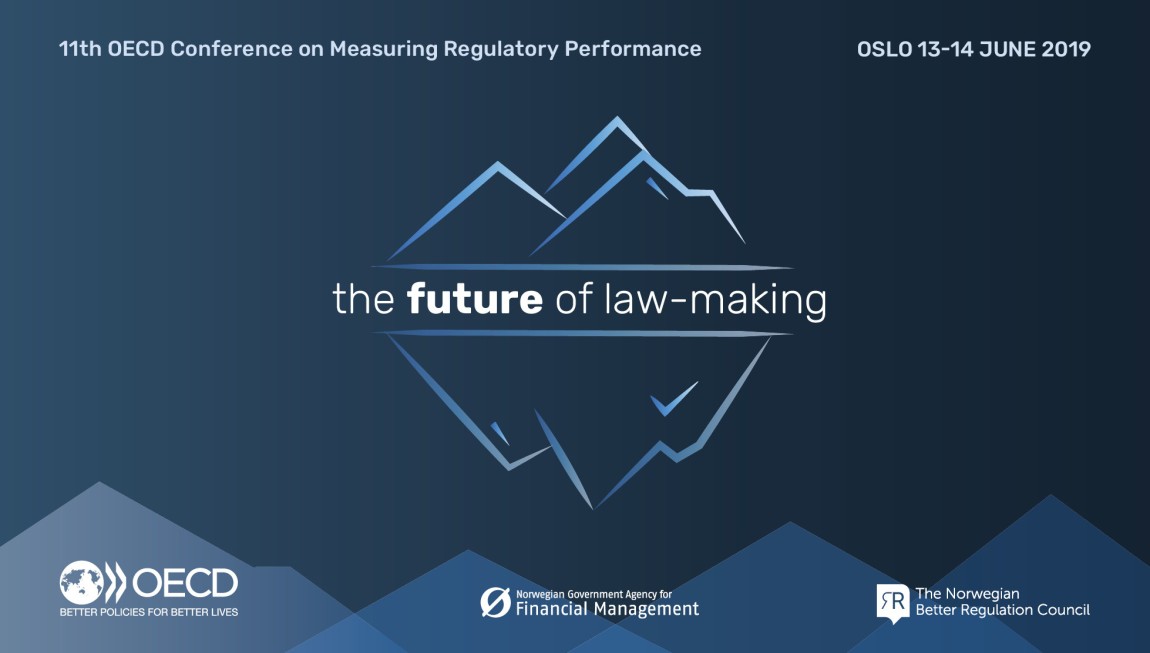13. June 2019. 11th OECD Conference on Measuring Regulatory Performance – Oslo, Norway.
Agenda for Thursday, 13 June
| 08.00–08.50 |
Registration for the Opening Conference and the Workshop. A welcome coffee will be served outside the room. Participants are kindly asked to be seated at 08.50. |
| 09.00–09.20 | Keynote speech: Regulatory policy in the digital age
|
|
09.20–09.40
|
Opening remarks
|
| 09.40–11.10 |
Panel discussian: Reality checks for laws: Better, bigger or smarter data? Discuss how to make better data available for evaluating the impact of regulations Panellists:
Moderator: Christiane Arndt-Bascle, Head of Programme, OECD Public Governance Directorate Questions for discussion
|
| 11.10–11.40 |
Coffee break |
| 11.40–13.00 |
Evidence-based policy making in a rapidly changing world Identify how RIA and ex post evaluation can inform laws in the future, helping policy-makers to stimulate innovation and address the challenges of transformative technologies. Panellists:
Moderator: Céline Kauffmann, Deputy Head of Division, OECD Public Governance Directorate Questions for discussion
|
| 13.00–14.30 |
Lunch (Restaurant Galleriet in hotel) |
Kontaktpersoner
Hilde Kyrkjebø
hilde.kyrkjebo@dfo.no
Maria Rosenberg
maria.rosenberg@regelradet.no

